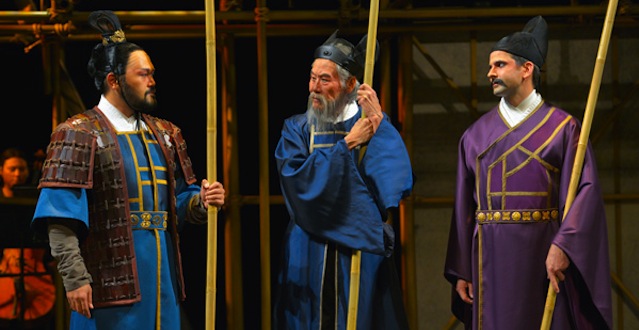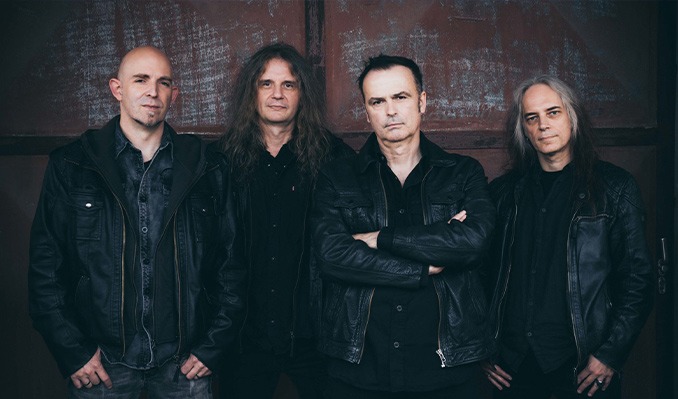Stage Review: Loyalty and Betrayal in The Orphan of Zhao

A gripping tale of murder, treachery and revenge, The Orphan of Zhao is playing now through June 29th at the American Conservatory Theater.
For this production, ACT reaches far back into the history of Chinese theater to stage what has been called the Chinese Hamlet. The story of the Orphan of Zhao first found its way to the West in 1735, when a Jesuit missionary produced a French translation. The Chinese original, however, was written at the end of the 13th Century, and is based on folk lore that goes all the way back to the 5th Century BC. Now, almost 900 years since it’s first staging, this classic piece still manages to speak to a modern audience.
As the show begins, a shallow, pleasure-driven emperor is manipulated by his power hungry advisor, Tu’an Gu, into believing his son-in-law Zhao Dun is a traitor. Because of Tu’an Gu’s treachery, all of Zhao Dun’s clan is massacred, and Zhao Dun is forced to take his own life.
His wife (the emperor’s daughter), who is with child, is locked away. Soon, a simple country doctor, Cheng Ying, is called in to aid the princess’s labor. She reveals that she has already given birth to a son, and implores Cheng Ying to harbor the child so that he may grow up and avenge his slaughtered clan. Cheng Ying dutifully agrees, even though he must sacrifice his own son to do so. The second act finds the orphan as a young man, unaware of his true past and his own destiny.
As a Western audience, it’s always interesting to look at the values of a different culture, particularly when we can do so through a classic work such as this that represents a more formational time in that culture’s ideology. In Orphan of Zhao we see loyalty and sacrifice brought to the forefront. In contradiction to the ego-driven stories we’re more used to, here we see character after character sacrifices everything for a higher cause, some even taking their own lives. Each character has loyalties and those loyalties matter more than themselves. It is in these conflicting loyalties that the story develops.
The method of story telling is also unique. Taking a page from Brecht, much of the story is told through monologue and soliloquy, as the characters turn to the audience and tell them their troubles, stories and ambitions. Often emotions are expressed through song. In fact, the music is one of the more interesting elements of the show, as the band uses their instruments to not only back songs but to create effects for the action on stage.
This leads to the elegance and grace of the staging and choreography, which truly sets the show apart. The stage is multi-storied bamboo scaffolding, which proves to be versatile enough to simulate any setting, as well as provide a good space for movement by the actors.
Perfect martial arts in line with the band’s effects are a joy to see. However, it is the orchestration of the death scenes (and there are many) that are truly where it shines. For instance, in one scene, the part of a baby is played by a burlap sack of red beans, which spill forth when the child is sliced open.
Overall, The Orphan of Zhao is an excellently written and acted production, where light and shadow dramatize the interplay of loyalty and treachery. It’s a grand production on an epic scale and well worth viewing to see a story almost a millennia old.
The Orphan of Zhao is playing now through June 29th at the American Conservatory Theate. More Info.








